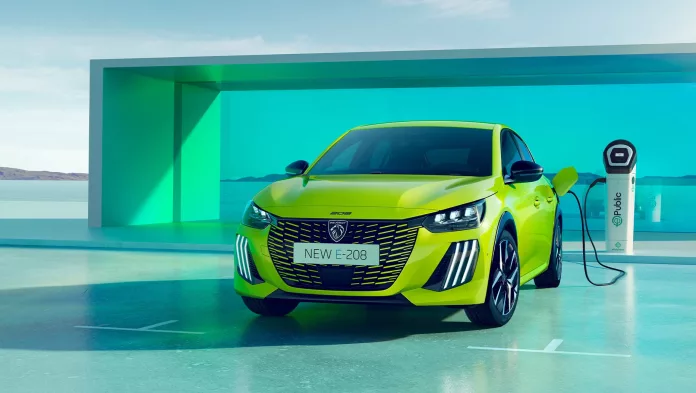The French plugin EV market witnessed a significant upsurge in February, with plugin EVs capturing 26.3% of the automotive market share, an increase from 23.8% in the same month the previous year. The growth in full electric vehicles (EVs) rose by 32% year-over-year (YoY), whereas plugin hybrid (PHEV) registrations saw a 12% increase. Despite a 13% YoY increase in overall auto sales, totaling 142,598 units, sales still trailed behind the pre-2020 levels of approximately 190,000 units. Capturing the spotlight once again, the Peugeot e-208 reigned as the bestselling full electric vehicle in France.
Breakdown of BEV and PHEV Market Shares
Delving into the specifics, the data displays that 18.1% of plugin EVs were full battery electric vehicles (BEVs), while plugin hybrids (PHEVs) accounted for 8.2%. Amidst a three-year stagnation for PHEVs resting around the 9% mark, BEVs exhibited a steady, albeit slow, advancement over the years. Starting from a mere 1.9% full-year market share in 2019, BEVs climbed to 16.8% in 2023, suggesting a potential jump to the 20% threshold in 2024. However, this gradual pace falls short of meeting more ambitious medium-term objectives, as projections indicate it could take until 2034 for BEVs to achieve a 50% market share in France. This trajectory is far too sluggish when compared to the 100% BEV sales target set for 2035.
BEV Pricing: The Elephant in the Room
The crux of the problem lies with the high pricing of BEVs, particularly in France’s most popular auto segments such as small and compact cars. For instance, the Peugeot 208 and its electric counterpart, the e-208, differ in price by a staggering 57%, with BEVs priced significantly higher than their combustion-engine equivalents. Despite the anticipated cost reductions in key BEV technologies like batteries, motors, and power electronics, European consumers are yet to see this reflected in the sticker price.
Take, for instance, automotive LFP cells which now cost about 44€ per kWh for major Chinese manufacturers. For small BEVs such as the Peugeot e-208 equipped with a 50 kWh battery, production costs should no longer be a significant price barrier. The discrepancy suggests that European car buyers may be facing inflated prices as European automakers report record profits. This raises questions about potential price collusion and limited competition in the European market.
The Changing Landscape of Incentives
With France’s eco-bonus incentive scheme set to change after March 15, several BEV models made outside Europe are expected to see an impact on their market performance. Anticipating these changes, manufacturers are pushing deliveries forward. The exclusion of notable models like the Dacia Spring and Tesla Model 3 from the incentive scheme post mid-March is expected to reshuffle the sales rankings and precipitate strategic price adjustments from affected carmakers. This dynamic market scenario sets the stage for an interesting end to Q2.
Highlighting February’s Best Selling BEVs
In more positive news, the Peugeot e-208 continued its reign as France’s best selling BEV in February, alongside strong performances from the Fiat 500e and Tesla Model Y. Surprisingly, the Citroen e-C4 saw a substantial increase in sales, while the new Volvo EX30 also made waves, though its future sales are expected to be dampened post-incentive adjustments.
As always, the competitive landscape is evolving. BMW‘s iX2 entered the French market, and the BYD Seal made strides, though its sales may falter once the new eco-bonus regulations come into effect. The Tesla Model Y remains a consistent leader, largely benefitting from being manufactured in Europe and retaining its incentive eligibility.
Outlook and Economic Indicators
Looking ahead, France’s economic resilience continues, boasting modest quarterly growth and inflation rates easing to their lowest in over two years. While BEV sales are set to undergo adjustments following changes to the eco-bonus schema, the hope is that price-sensitive manufacturers will adjust to retain their market presence.
As the landscape reshapes, some constrained BEV models may shift focus to other European markets where incentives are still viable. The unfolding of the French auto market post-Q2 will provide insights into the impact of these recent developments.
























